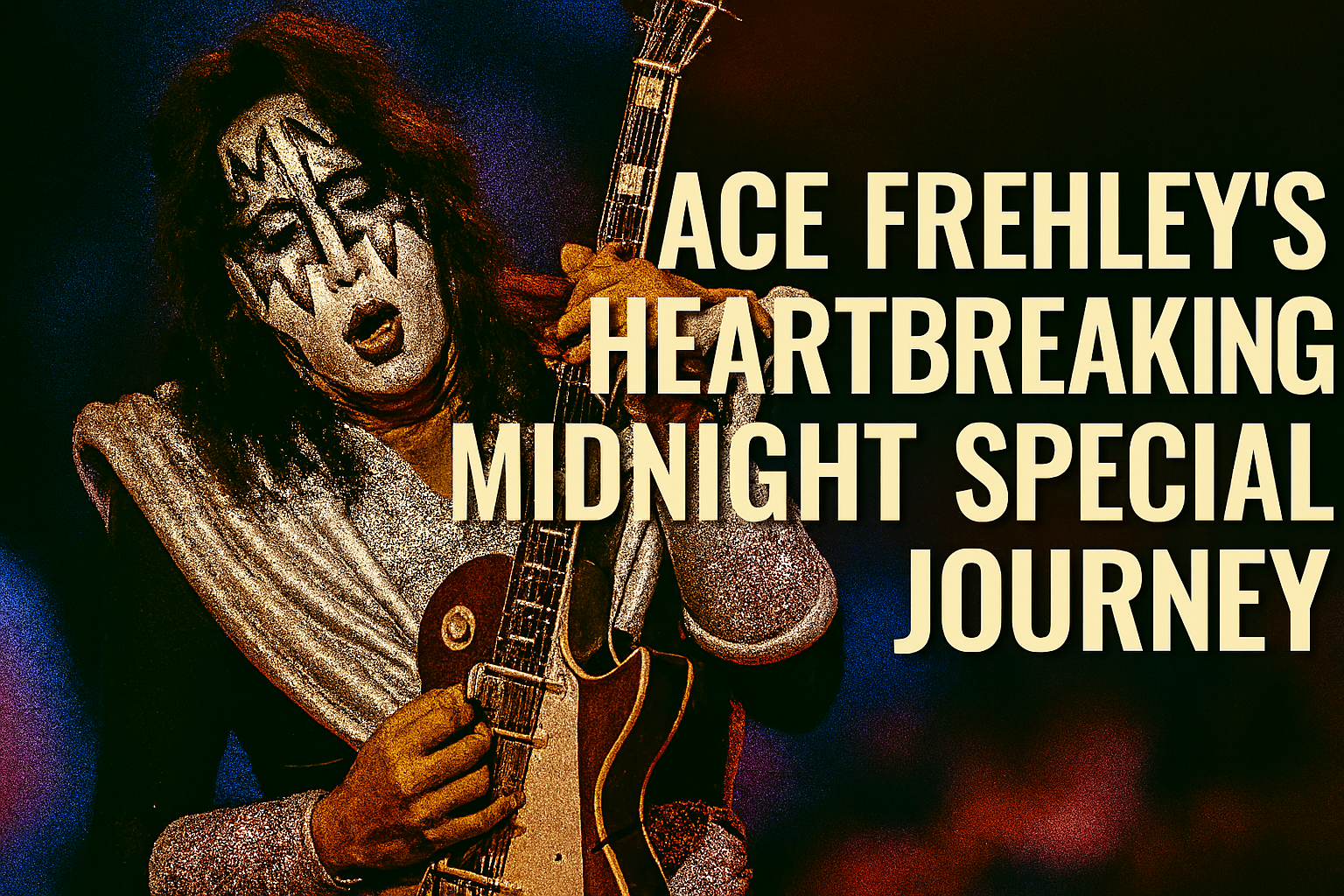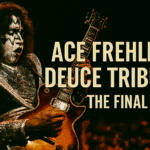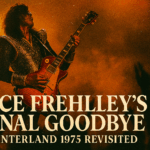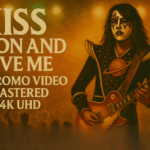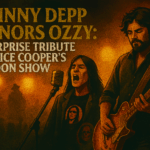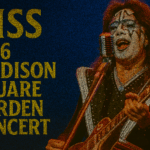Ace Frehley on The Midnight Special
There are performances that sit comfortably in a catalog; then there are performances that feel elemental, as if they were always meant to be. Ace Frehley’s seven‑minute rendition of “She” on The Midnight Special belongs to the latter. It wasn’t simply a televised set — it was a concentrated coal of artistry that burned with a particular heat: spare, luminous, and unmistakably Ace. Watching it now, after his passing, the footage reads less like archival footage and more like a last message from someone who played with his whole heart.
The Performance
From the first measure, the rendition announces itself as something beyond routine. The arrangement gives Ace room to breathe and to build: patient verses that let the drama accumulate, and a solo section that unfolds like a conversation. He doesn’t rush; he lets the melody assert itself and then enlarges it with single lines that cut cleanly through the band. Those seven minutes feel deliberately shaped — not a display of excess but a study in how intensity can be sustained when every note counts. The result is a performance that feels both tightly controlled and vividly spontaneous.
Tone and Technique
What distinguishes the performance is tone: a midrange‑forward voice that sits perfectly in the mix, ringing with grit but retaining a clear, singing quality. Ace prized single‑note expression over technical pyrotechnics; his vibrato, bends, and attack are all deployed as rhetorical devices that give each phrase personality. In the “She” solo he chooses notes that sing and hang, using silence and space as punctuation. When the line opens up, it lands with impact because he has earned it with restraint. That balance between compression and release is classic Frehley: economical, melodic, and emotionally direct.
Stage Presence and Mystique
On camera, Ace’s physical presence amplifies the music. He plays with a measured swagger rather than ostentation; the Spaceman persona is felt in his posture and choices but never overwhelms the playing. He leans into moments, lets his face and hands tell the story, and the audience sees a musician who’s concentrated on doing one thing supremely well. There’s a vulnerable thread under the bravado — a sense that the music is personal and not merely performative. That quality is what makes the footage linger: it reveals the human behind the costume, the player behind the myth.
Emotional Weight Now
Time and loss hollow certain sounds out, revealing new emotional textures. What once might have read as triumph now reads as farewell. The solo’s sustained notes, which in the moment felt like declarations, take on an elegiac hue when viewed after Ace’s death. Listeners superimpose memory and mourning onto the performance: youthful rebellion, late‑night devotion to records and broadcasts, the small rituals that tied a generation to its heroes. The result is pain braided with gratitude — a painful affection for a musician whose work was part of the soundtrack to so many private lives.
Musical and Cultural Legacy
Ace’s playing in KISS created a necessary counterbalance to the band’s theatricality. While spectacle and character were core to the band’s identity, his guitar gave songs a melodic backbone and emotional honesty. The Midnight Special performance distills that contribution: it’s theatrical but grounded; it rewards close attention and holds up as a demonstration of tone, taste, and songcraft. It’s also a reminder that the best parts of rock history are not only the big gestures but the concise moments of phrasing that lodge in memory and become templates for later players.
Why the Clip Endures
Several forces keep this rendition alive. Musically, it contains a clear, memorable solo that serves the song rather than overshadowing it. Visually, the television vantage point captures both the performance and the performer’s face, which anchors the moment in human terms. Culturally, the clip sits at the intersection of nostalgia and musical education: older listeners return to reconnect with a formative sound, while younger players study it for lessons in economy and tone. Finally, loss sharpens attention; the performance becomes an object of collective remembrance.
Final Reflection
Ace Frehley’s Midnight Special “She” is more than a standout clip; it’s an artifact of a musician who could say a great deal with a few well‑chosen notes. Watching him now reveals both the technical gifts and the emotional generosity he brought to the stage. The solo’s notes still cut; they still sing; they still hold that trace of fire that made him singular. And because music lives in listeners’ memories as much as in recordings, this performance will continue to burn — not as smoke from an extinguished flame, but as a tiny, enduring ember that keeps the sound alive.
